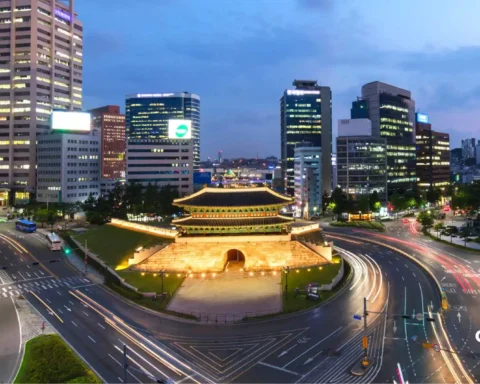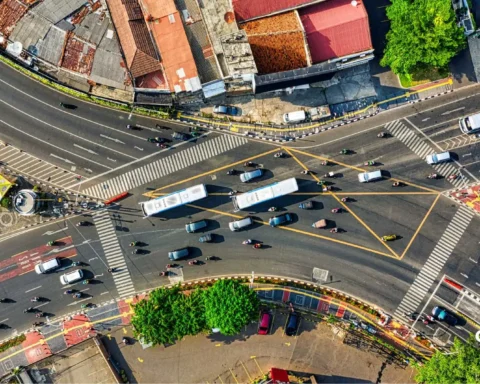Indian society is known for its ties with its traditions since time immemorial. A land of diverse traditions and cultural richness, India has its unique approach to relationships and marriage. However, westernization, as a consequence of globalization, has introduced modern dating practices, challenging conventional norms.
The interplay between love and tradition necessitates the need to navigate cultural differences in Indian dating, which is characterized by familial expectations, social customs, and personal desires. From arranged marriages to love marriages, from caste considerations to interfaith relationships, Indian dating is a delicate balance between honoring cultural values and embracing evolving perspectives on love.
Table of Contents
Are Matrimonial Sites and Dating Apps Two Sides of the Same Coin?
The rise of dating apps like Tinder, Bumble, and Hinge is seen as a Western influence where young Indians are given more control over their romantic choices. Swiping on profiles based on their looks and certain prompts, exchanging socials, and ending up going on a date have become the norm. It is a way to connect with people outside your social circle to find precisely what you are looking for. This involves talking to multiple people simultaneously and going on multiple dates till you find “the one”. A report revealed that India had 26 million users on dating apps in 2020, depicting the growing popularity of this trend.
Indian adults see this concept of dating apps as “too western”, i.e., something that goes against everything our values stand for, i.e., family expectations, caste, religion, as well as socio-economic background, and conforming to the traditional gender roles. But aren’t matrimonial sites the same? Do you not “swipe” people primarily based on their looks?
You build a profile that has some basic knowledge about you, along with your best pictures, and it gets circulated for other random “single-ready-to-mingle” people to swipe on. The difference lies in the fact that here, the parents play the biggest part in choosing a suitable potential partner for their child, and by child, I mean a fully grown adult, doing away with the apprehension about partners.
Online dating is still viewed with skepticism in conservative circles in the Indian community, and many people fear judgment from family and society. Many young Indians find themselves caught between progressive ideologies and conservative familial pressures. While they may seek a partner based on emotional compatibility, family approval often remains a crucial factor in determining the future of the relationship. So, the problem does not come down to which is better, dating apps or matrimonial sites; it is the family’s involvement that continues to put matrimonial sites on the pedestal.

Is Family Involvement Wholesome or Burdensome?
In traditional Indian households, marriage is seen as more than just a union between two individuals – it is an alliance between families. Parents usually have a say in their children’s choice of partners, leading to negotiations that sometimes compromise individual preferences. Contrary to American values, Indian values dictate that children stay with their parents till they are married; they do not have to move out as soon as they become legal adults. This creates an interdependent relationship that affects the personal lives and the romantic lives of the child.
The pressure to marry by a certain age, according to societal norms, adds another layer of complexity. This pressure leads to hurried decisions, where individuals may prioritize parental approval over personal compatibility. On the other hand, an increasing number of young Indians are asserting their autonomy in romantic relationships. They are vocal about their preferences, prioritizing emotional connection with their partners over their family’s say, indicating a changing dynamic in Indian dating culture.
While the involvement of family is not a burden per se, it can become one when the individual’s choice is not taken into account at all and, thus, forced to marry against their will. Indian parents view life as a duty to the community, and marriage is just another milestone in this duty. But marriage is much more than that. Choosing a life partner is not an easy task, and both the parents and the individual need to understand this thoroughly before making any major decisions and navigating cultural differences in Indian dating.
Navigating Cultural Differences in Indian Dating: Caste, Religion, and Social Expectations
Caste and religion continue to play crucial roles in Indian dating and marriage. Many families still adhere to endogamy – the practice of marrying within the same caste or community. This expectation can limit an individual’s choice of partners, particularly in arranged marriage setups.
Intercaste, interfaith, and interethnic dating often face resistance while navigating cultural differences in Indian dating. Even highly educated individuals sometimes find it difficult to convince their families to accept a partner from a different background. While legal protections exist for such marriages, societal disapproval and familial opposition remain significant hurdles.
Meeting such societal expectations while balancing your relationship and understanding your partner can be quite a challenge, but communication and mutual respect can help overcome some of these hurdles and build a stronger foundation for relationships. There needs to be a conscious effort in real life to advocate your case for modern dating culture in order for it to be accepted.
Are the Changing Attitudes Improving the Future of Indian Dating?
The future of Indian dating is shaped by evolving mindsets, increased exposure to global cultures, and greater emphasis on individual choice. While tradition still holds significant influence, resistance from individuals is making indian urban parents more open to modern dating practices. Although they may not accept live-in relationships and casual dating because of the sanctity of marriage, Western concepts like love marriages, intercaste relationships, and independent partner selection are steadily gaining acceptance.
Education and financial independence play important roles in navigating cultural differences in Indian dating. As more Indian women are faced with more career opportunities and financial stability, they gain greater autonomy in choosing their partners. Similarly, young men are challenging patriarchal traditional norms and doing away with their misogynistic lens, advocating for equality in relationships.
Conclusion
Indian dating landscape asks for a balance between love and tradition, shaped by cultural expectations and familial influences. While traditional values continue to hold sway, modernization and global exposure have paved the way for greater individual autonomy in relationships.
Navigating cultural differences in Indian dating involves preserving its rich tapestry of ancient traditions while embracing new ways of finding love. It requires patience, understanding, and courage. As mindsets continue to evolve, Indian dating will likely strive for a more balanced approach- one that respects traditions while allowing individuals the freedom to choose their own paths in love.

FAQs
How do you navigate cultural differences in a relationship?
Open communication and mutual respect are key to navigating cultural differences in a relationship. Discussing your backgrounds, values, and expectations helps you understand each other better, finding common ground while celebrating what makes each of you unique.
How does culture influence dating?
Culture shapes dating norms by defining acceptable behaviors, gender roles, and relationship expectations, influencing how people meet, court, and commit. It also impacts values like marriage timing and family involvement.
How is Indian culture different from other cultures?
Indian culture is unique for its deep-rooted traditional values, spiritual and cultural diversity, and strong family values, emphasizing respect for elders and collective living.









